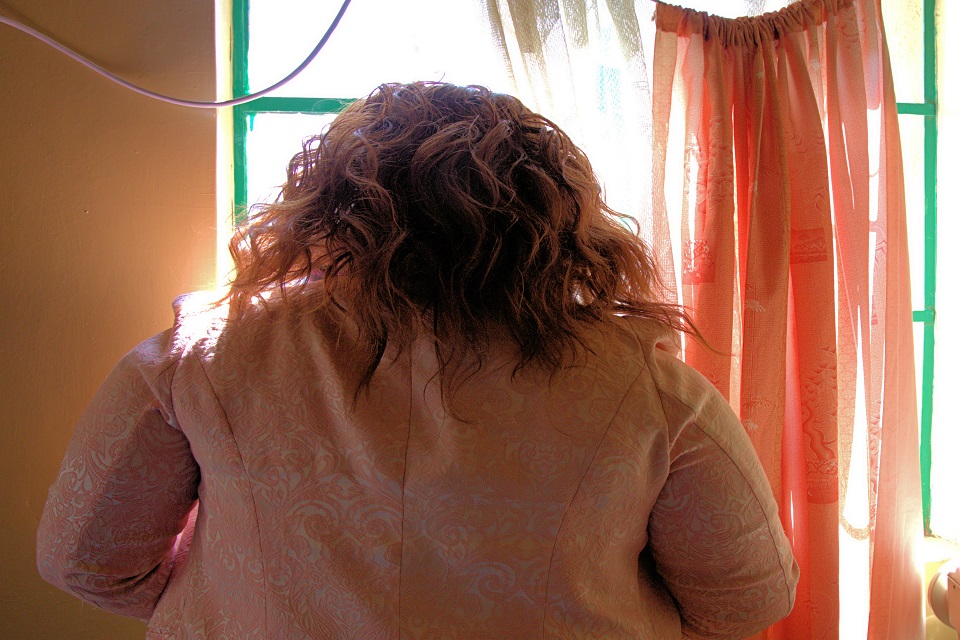General
Trafficked Nigerian Women Become Wealthy from Pröstitution—UK Report

Women’s rights experts have expressed shock and dismay by the new UK Home Office guidelines that some women from Nigeria, who have been trafficked to the UK for sèxual exploitation, can become “wealthy from pröstitution” and are “held in high regard” when they return to their country of origin.
The comments are part of updated country policy and information notes on Nigeria that were released on June 25, 2019, to be used by Home Office UK Visa and Immigration officials when making decisions in asylum and human rights applications on whether trafficked women are at risk of harm if they are sent back.
“Trafficked women who return from Europe, wealthy from pröstitution, enjoy high social-economic status and in general are not subject to negative social attitudes on return. They are often held in high regard because they have improved income prospects,” the paragraph read.
This portrayal does not reflect the realities faced by the vast majority of sex trafficking survivors, who rarely profit from being forced into prostitution and face extensive psychological and physical trauma from being raped repeatedly day after day, compounded with other forms of abuse, the rights expert pointed out.
Instead, the UK government guidelines issued by the Home Office minimizes the gross human rights violations endured by sèx trafficking victims, 96% of whom are women and girls. It also encourages Home Office decision-makers to refuse asylum claims for women who have been forced into commercial sexual exploitation, placing the vulnerable at further risk, they added.
International women’s rights organization Equality Now called on the UK government to immediately amend its Home Office guidelines and to live up to its obligations within its own legislation, including the Modern Slavery Act 2015, as well as international law. This includes offering better protection and support services to victims of sèx trafficking, and bringing perpetrators to justice.
According to the experts, push factors such as poverty, gender discrimination and high rates of sèxual violence remain for trafficked women who return home, and they face the additional burden of prejudice and marginalization resulting from negative social attitudes associated with pröstitution, including those linked to 高端外围.
Many suffer from Post-Traumatic Stress Disorder, often exacerbated by a lack of integrated and holistic support services to assist them in overcoming wide-ranging mental and physical health problems. If they are unable to provide economic support for their families, the associated shame and stigma can make matters worse, and it is also common for madams and traffickers to employ threats and intimidation to demand further payments of alleged debts. All this leaves women at risk of further victimization and re-trafficking.
Human traffickers, pimps and brothel owners are the ones who gain financially from trafficking for sèxual exploitation, which is the fastest growing criminal enterprise in the world, netting $99 billion each year, they stressed.
General
NISO Attributes Electricity Woes to Inadequate Gas Supply

By Adedapo Adesanya
The Nigerian Independent System Operator (NISO) has attributed the poor power supply facing a considerable number of Nigerians to inadequate gas supply to thermal power plants.
Business Post reports that epileptic power supply has plagued consumers in Lagos, Oyo, Abuja, and Osun, among others, this month, leading to worries. Also, some businesses have recorded losses due to the epileptic power supply in their areas.
In a statement posted on its X handle, NISO disclosed that average available generation on the national grid currently stands at about 4,300 megawatts (MW), with the low output primarily attributed to gas supply constraints.
The system operator noted that thermal power plants, which account for the dominant share of Nigeria’s electricity generation mix, require an estimated 1,629.75 million standard cubic feet (MMSCF) of gas per day to operate at optimal capacity. However, as of February 23, 2026, actual gas supply to the plants was approximately 692.00 MMSCF per day.
The available supply represents less than 43 per cent of the daily gas requirement, resulting in constrained generation output and reduced electricity allocation to Distribution Companies (DisCos).
NISO, which independently manages the nation’s electricity grid, explained that any disruption or limitation in gas supply directly affects available generation capacity and overall grid output, given the heavy reliance on thermal plants.
It added that when total system generation drops significantly, the operator is compelled to implement load shedding across the network while dispatching available energy in line with allocation percentages approved under the Multi-Year Tariff Order (MYTO) framework of the Nigerian Electricity Regulatory Commission (NERC), to maintain grid stability and prevent system disturbances.
While expressing regret over the inconvenience to electricity consumers and market participants, NISO said it is working closely with relevant stakeholders to restore full energy allocation once gas supply improves and generation capacity returns to normal levels.
General
EFCC Re-Arraigns ex-AGF Malami, Wife, Son Over Alleged Money Laundering

By Adedapo Adesanya
The Economic and Financial Crimes Commission (EFCC) has re-arraigned former Attorney-General of the Federation (AGF), Mr Abubakar Malami (SAN), his wife, Mrs Asabe Bashir, and son, Mr Abdulaziz Malami, on money laundering charges.
They were brought before Justice Joyce Abdulmalik of the Federal High Court in Abuja, following the re-assignment of the case to the new trial judge.
Upon resumed hearing, EFCC’s lawyer, Mr Jibrin Okutepa (SAN), informed the court that the matter was scheduled for defendants’ re-arraignment.
“The matter is coming before your lordship this morning for the very first time. I will be applying for the plea of the defendants to be taken,” he said.
Mr Okutepa equally applied that the sums listed in Counts 11 and 12 be corrected to read N325 million instead of N325 billion for Count 11, and N120 million instead of N120 billion for Count 12.
When it was not opposed by the defence lawyer, Mr Joseph Daudu (SAN), Justice Abdulmalik granted the oral application by Mr Okutepa.
The defendants, however, pleaded not guilty to the 16 counts preferred against them by the anti-graft agency bordering on money laundering.
Justice Obiora Egwuatu had, on February 12, withdrawn from the case shortly after the civil case filed by the EFCC was brought to him.
The case was formerly before Justice Emeka Nwite, who sat as a vacation judge during the Christmas/New Year break.
After the vacation period, the CJ reassigned the cases to Justice Egwuatu, who had now recused himself, before it was reassigned to Justice Abdulmalik.
The former AGF, his wife, and son were earlier arraigned before Justice Nwite on December 30, 2025.
While Malami and his son were remanded at Kuje Correctional Centre, Asabe was remanded at Suleja Correctional Centre before they were admitted to N500 million bail each, on January 7, with two sureties each in the like sum.
General
INEC Shifts 2027 Presidential, N’Assembly Elections to January 16

By Adedapo Adesanya
Nigeria will hold next year’s presidential and National Assembly elections a month earlier than planned, after the Independent National Electoral Commission (INEC) revised the polling schedule.
The elections will be held on January 16, instead of the previously announced date of February 20, INEC said in an X post, signed by Mr Mohammed Kudu Haruna, National Commissioner and Chairman, Information and Voter Education Committee.
There were also changes to the Governorship and State Houses of Assembly elections initially fixed for Saturday, March 6 2027, in line with the Electoral Act, 2022, have now been moved to Saturday, February 6, 2027.
The electoral commission said the changes were caused by the enactment of the Electoral Act, 2026 and the repeal of the Electoral Act, 2022, which introduced adjustments to statutory timelines governing pre-election and electoral activities.
“The Commission reviewed and realigned the schedule to ensure compliance with the new legal framework,” it said.
INEC said party primaries (including resolution of disputes) will commence on April 23, 2026 and end on May 30, 2026, after which Presidential and National Assembly campaigns will begin on August 19, 2026, while Governorship and State Houses of Assembly campaigns will begin on September 9, 2026.
It noted that campaigns will end 24 hours before Election Day, and political parties have been advised to strictly adhere to the timelines.
INEC also stated it will enforce compliance with the law.
The electoral body also rescheduled the Osun Governorship election which was earlier scheduled for Saturday, August 8 2026, by a week to Saturday, August 15, 2026.
INEC noted that some activities regarding the Ekiti and Osun governorship elections have already been conducted, and the remaining activities will be implemented in accordance with the Electoral Act, 2026.
Speaking at a news briefing in Abuja two weeks ago, the chairman of INEC, Mr Joash Amupitan, expressed the readiness of the commission to conduct the polls next year.
The timetable issued by the organisation for the polls at the time came when the federal parliament had yet to transmit the amended electoral bill to President Bola Tinubu for assent.
Later that week, the Senate passed the electoral bill, reducing the notice of elections from 360 days to 180 days, while the transmission of results was mandated with a proviso.
-

 Feature/OPED6 years ago
Feature/OPED6 years agoDavos was Different this year
-
Travel/Tourism10 years ago
Lagos Seals Western Lodge Hotel In Ikorodu
-

 Showbiz3 years ago
Showbiz3 years agoEstranged Lover Releases Videos of Empress Njamah Bathing
-

 Banking8 years ago
Banking8 years agoSort Codes of GTBank Branches in Nigeria
-

 Economy3 years ago
Economy3 years agoSubsidy Removal: CNG at N130 Per Litre Cheaper Than Petrol—IPMAN
-

 Banking3 years ago
Banking3 years agoSort Codes of UBA Branches in Nigeria
-

 Banking3 years ago
Banking3 years agoFirst Bank Announces Planned Downtime
-

 Sports3 years ago
Sports3 years agoHighest Paid Nigerian Footballer – How Much Do Nigerian Footballers Earn











